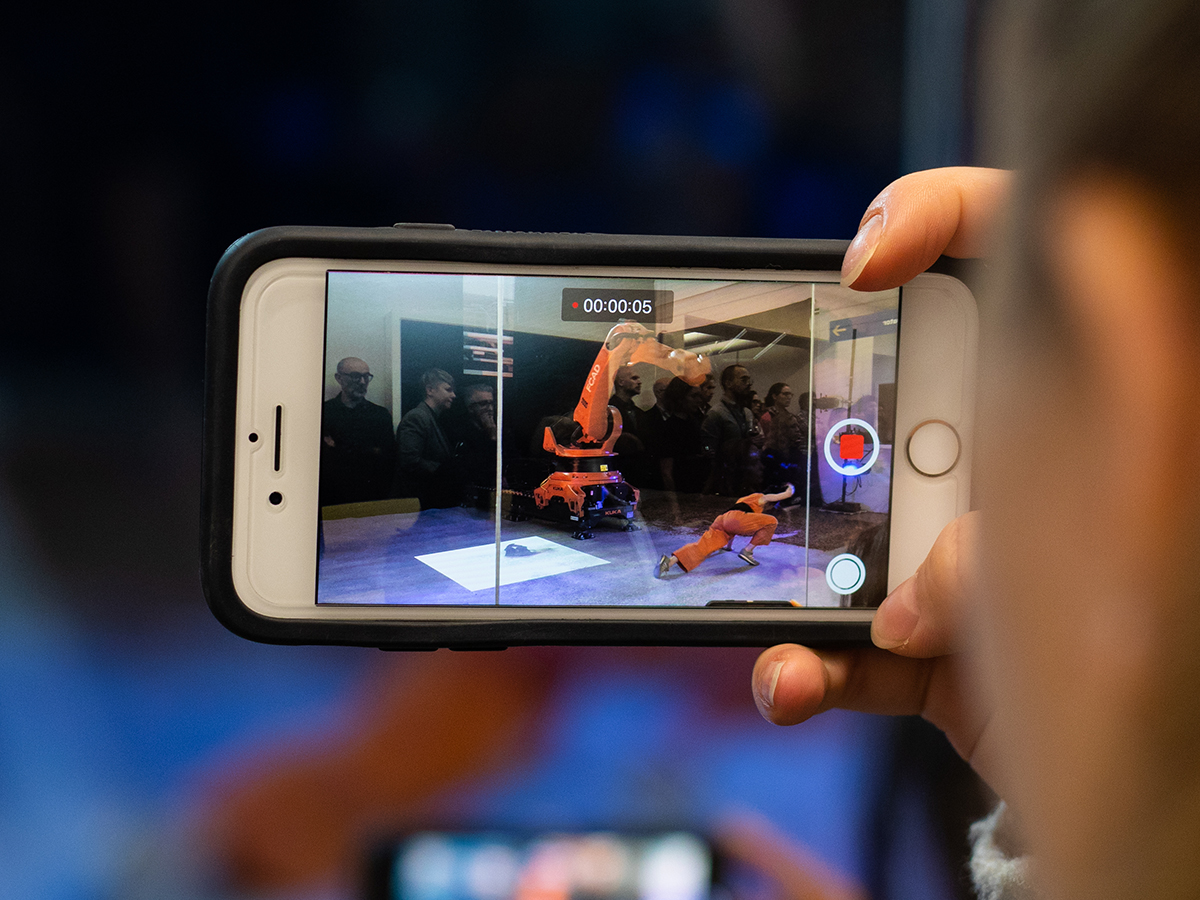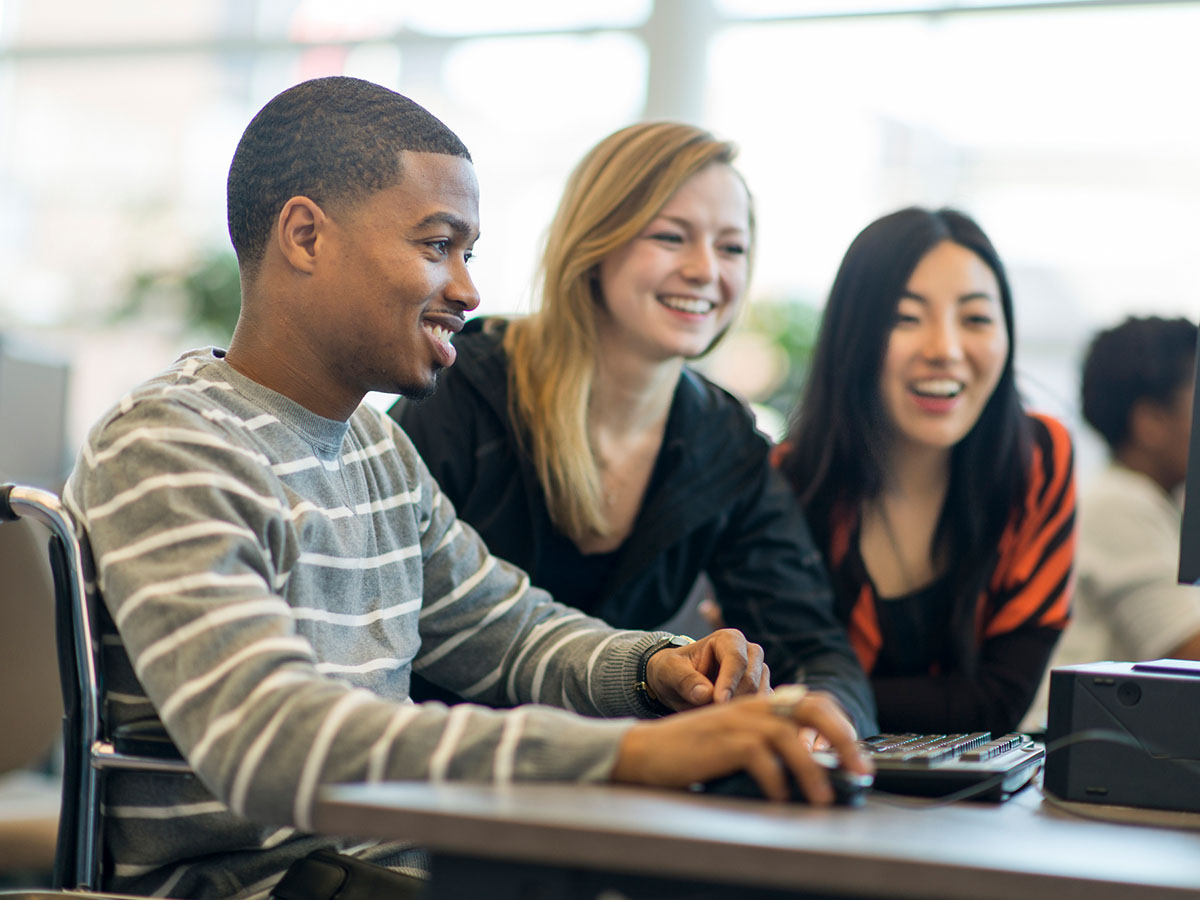You are now in the main content area
The digital interface: Decoding our relationship with technology

Message from the Vice-President, Research & Innovation
Technology permeates many aspects of our way of life through advancements previously unimagined, from robotics and machine learning to textile computing and augmented reality. As these digital developments continue to gather pace, our relationship with technology and the ways in which we interact with it — and with each other — are evolving rapidly.
This publication is made possible, in part, with the support of the Research Support Fund. Image credit: Lee Foster.
Intersection

Can you feel empathy for a dancing robot?
Dance has the power to elicit strong emotions from an audience, but what if the performance was by a robot? Professor Michael F. Bergmann of the School of Performance is exploring the potential of involving intelligent machines in dance choreography.

Robotic arm research: Extending our reach
In the 20 years that aerospace engineering professor Guangjun Liu has been at Ryerson, the field of robotics has seen significant progress. Yet in this time, professor Liu maintains that the central elements of the discipline have remained the same.
360 Degrees

Innovations in dementia care
There are an estimated 50 million people currently living with dementia around the world and this number is expected to triple to 152 million by 2050. Researchers at Ryerson are working with new technologies to help health-care providers support this growing population.

Predicting type 2 diabetes with machine learning
Professor Aziz Guergachi of the Ted Rogers School of Information Technology Management is researching new methods to help doctors predict the likelihood of patients developing type 2 diabetes.
Policy and Perspective

Will digital participation give us the cities we want?
The ways in which citizens interact with local governments are changing as municipalities gain access to new connected technologies and data collection tools. Professor Pamela Robinson of the Faculty of Community Services at Ryerson is interested in how this digital civic participation will affect authorities’ decision making on planning issues.

Rural risk in a high-speed world
As our daily lives become ever more reliant on high-quality internet access, Ted Rogers School of Management professor Catherine Middleton has been investigating the ways in which this pressure is affecting rural communities.

How powerful is data activism?
Grassroots activists around the world are increasingly using data to draw attention to political causes. But how effective is this strategy, known as data activism, in convincing authorities to take notice and respond?
Culture

Augmenting the museum experience
Museum visitors’ experiences can be enhanced with augmented reality and interactive technologies, yet designers must be careful that these features don’t overshadow the objects at the heart of each exhibit.

A history of making ourselves heard
Professor Art Blake of the Department of History has been researching our relationship with new media over the past 75 years to reveal how individuals use technology to make themselves heard.
Education

How to level-up education with video games research
With the popularity of video games continuing to rise globally, Ryerson professor and alumnus Kris Alexander believes educational institutions should pay closer attention to what makes popular titles so engaging for young people.
In Our Community

Inclusive design in digital games and entertainment
Entertainment, media, art and culture enable individuals to connect with one another, to learn and to develop, and to enjoy new and varied emotional experiences. For professor Deborah Fels of the Ted Rogers School of Management, equal access to these aspects of everyday life is therefore critical.
Partner to Innovate

Reducing greenhouse gas emissions with big data
Researchers from Ryerson have been collaborating with Screaming Power, an energy-focused mobile applications company, on technology that predicts energy usage through real-time analysis of vast data sets.
Student Feature

Could blockchain help to deliver aid during disasters?
The term blockchain is often associated with digital cryptocurrencies, yet there are many other potential uses for the technology. Mehmet Demir spent three years researching some of these applications as part of a project into aid distribution during natural disasters.

Making robots, creating companions
For decades, science fiction writers and filmmakers have been imagining a future in which humans are assisted in their lives by robot sidekicks. Now, as developments in artificial intelligence (AI) accelerate, researchers are exploring the question of what we really want from such digital companions.















